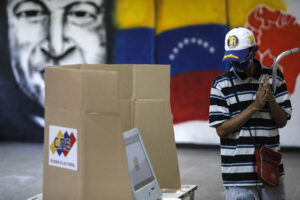On February 4, 2024, in a context of grave deterioration of the rule of law, lack of judicial guarantees, and institutional weakness, Salvadoran citizens went to the polls to elect the president and vice president, as well as deputies to the Legislative Assembly. The Washington Office on Latin America (WOLA), the Center for Justice and International Law (CEJIL), the Latin America Working Group (LAWG), the Due Process of Law Foundation (DPLF), and Robert F. Kennedy Human Rights express their profound concern over the numerous reports of technological issues that occurred during the counting of votes and the irregularities that arose during the transmission of the official results.
Without the Supreme Electoral Tribunal (TSE, in Spanish) having communicated the official results, an exit poll conducted by CID Gallup was published. It was the only information citizens had access to during election night. Even without official results, candidate Nayib Bukele, who was registered to run for president despite a constitutional ban, declared himself the winner according to his campaign’s own data, and not official data.
The last update of the preliminary results on the TSE website reflects the processing of 70.25 percent of the ballots for the presidential election and 5.06 percent of the ballots for deputies of the Assembly. The TSE’s failure to present official results reflects a lack of transparency and raises serious doubts about the integrity of the electoral process and the credibility of the tribunal itself.
The Electoral Observation Mission of the Organization of American States (MOE/OEA, in Spanish) reported having received 42 complaints related to delays in the system transmitting the results and in relation to electoral propaganda in voting centers, among other irregularities. In addition, national observation groups such as “Observa El Salvador 2024” reported that electoral propaganda activities were carried out in 55 percent of polling stations, which is prohibited by the Electoral Code.
At the close of polls, observation missions reported a delayed start in the counting of votes due to polling stations not having received the technical equipment required for transmitting the results. This setback, coupled with technological failures, prolonged the counting process until late at night. As reported by the MOE/OEA, only 56 percent of the observed polling stations followed the established procedures for vote counting.
The Salvadoran authorities must comply impartially and without delay with the electoral regulations and international standards to guarantee the political rights of Salvadoran citizens, especially regarding the security and public nature of the vote count, in order to guarantee the free expression of the will of the voters, as established in Article 23 of the American Convention on Human Rights.
It is crucial that the TSE act swiftly to address any irregularities, ensure the integrity of the electoral process, and provide accurate information to the public. Failure to comply further undermines confidence in the electoral system and the legitimacy of the election results.
Lastly, the undersigned organizations call on the Salvadoran authorities to guarantee freedom of expression, demonstration, and assembly of all dissident voices, especially those of the feminist and human rights movements.

